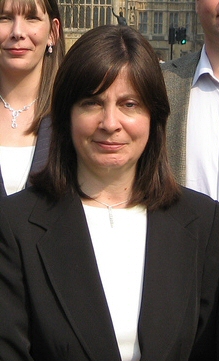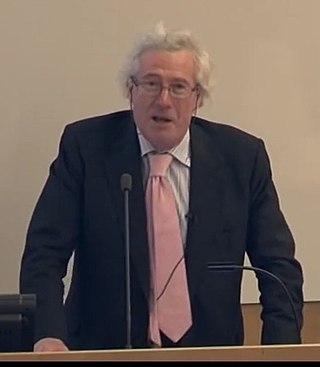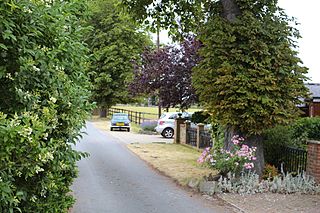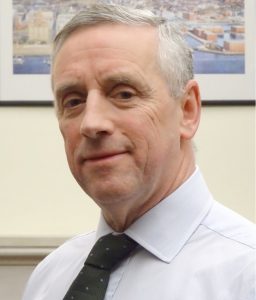Related Research Articles
Sally Clark was an English solicitor who, in November 1999, became the victim of a miscarriage of justice when she was found guilty of the murder of her two infant sons. Clark's first son died in December 1996 within a few weeks of his birth, and her second son died in similar circumstances in January 1998. A month later, Clark was arrested and tried for both deaths. The defense argued that the children had died of sudden infant death syndrome (SIDS). The prosecution case relied on flawed statistical evidence presented by paediatrician Roy Meadow, who testified that the chance of two children from an affluent family suffering SIDS was 1 in 73 million. He had arrived at this figure by squaring his estimate of a chance of 1 in 8500 of an individual SIDS death in similar circumstances. The Royal Statistical Society later issued a statement arguing that there was no statistical basis for Meadow's claim, and expressed concern at the "misuse of statistics in the courts".
Sir Samuel Roy Meadow is a British retired paediatrician infamous for facilitating several wrongful convictions of mothers for murdering their babies. He was awarded the Donald Paterson prize of the British Paediatric Association in 1968 for a study of the effects on parents of having a child in hospital. In 1977, he published an academic paper describing a phenomenon dubbed Munchausen Syndrome by Proxy (MSbP). In 1980 he was awarded a professorial chair in paediatrics at St James's University Hospital, Leeds, and in 1998, he was knighted for services to child health.

Angela Cannings was wrongfully convicted and sentenced to life imprisonment in the UK in 2002 for the murder of her seven-week-old son, Jason, who died in 1991, and of her 18-week-old son Matthew, who died in 1999. Her first child, Gemma, died of Sudden Infant Death Syndrome (SIDS) in 1989 at the age of 13 weeks, although she was never charged in connection with Gemma's death.

Jonathan Philip Chadwick Sumption, Lord Sumption,, KC, is a British author, medieval historian, former senior judge who sat on the Supreme Court of the United Kingdom between 2012 and 2018, and a Non-Permanent Judge of the Hong Kong Court of Final Appeal from 2019 to 2024.

The General Medical Council (GMC) is a public body that maintains the official register of medical practitioners within the United Kingdom. Its chief responsibility is to "protect, promote and maintain the health and safety of the public" by controlling entry to the register, and suspending or removing members when necessary. It also sets the standards for medical schools in the UK. Membership of the register confers substantial privileges under Part VI of the Medical Act 1983. It is a criminal offence to make a false claim of membership. The GMC is supported by fees paid by its members, and it became a registered charity in 2001.
Harassment, alarm or distress is an element of a statutory offence in England and Wales, arising from an expression used in sections 4A and 5 of the Public Order Act 1986, which created the offence. The Act was amended in 1994.
The Adjudication Panel for England was an independent judicial tribunal set up under the Local Government Act 2000. Its role was to rule on alleged breaches of English local authorities' codes of conduct by elected members of those authorities.
Sir Peter Winston Smith, abbreviated to Peter Smith J in judgements, is a former High Court judge who sat in the Chancery Division of the High Court of Justice in England and Wales from 5 April 2002 to 27 October 2017. He was the subject of comment and investigation in relation to his judicial behaviour in various circumstances. He retired on 28 October 2017.
Richard Mawrey, KC is a barrister and Deputy High Court Judge in the United Kingdom. He is a bencher of Gray's Inn and a member of Henderson Chambers. In his role as a judge in election cases, he has repeatedly criticised the postal voting system in the United Kingdom.
The Afghan hijackers case was a series of United Kingdom judicial rulings in 2006 in which it was ruled a group of nine Afghan men, who had hijacked an aircraft to escape the Taliban, had the right to remain in the UK. The case provoked widespread political controversy and was questioned by large sections of the media, causing widespread condemnation by many newspapers, and the leaders of both the Labour Party and the Conservative Party. Prime Minister of the United Kingdom Tony Blair called the ruling "an abuse of common sense", while the Conservative Party leader David Cameron pledged to reform British human rights legislation to prevent a recurrence of such situations.
Sir Jeremy Mirth Sullivan became a Lord Justice of Appeal in January 2009 and was appointed Senior President of Tribunals in 2012. He retired from both positions on 17 September 2015. On 25 October 2016 the Transport Secretary announced that Sullivan would oversee the consultation which will follow his announcement recommending a third runway at Heathrow.
Donna Anthony is a British woman from Somerset who was jailed in 1998 after being convicted of the murder of her two babies. She was cleared and freed after having spent more than six years in prison.

Save Historic Newmarket is grassroots organisation based in Newmarket, Suffolk, with the stated aim of preserving the town as the global centre of the horseracing industry and the many thousands of jobs it provides, and as a potential World Heritage Site. It came to national attention as one of many groups opposed to the Hatchfield stud farm development.
In United Kingdom election law, an election court is a special court convened to hear a petition against the result of a local government or parliamentary election. The court is created to hear the individual case, and ceases to exist when it has made its decision.
Sir Brian Henry Leveson is a retired English judge who served as the President of the Queen's Bench Division and Head of Criminal Justice.
Sir Christopher David Floyd, PC, is a retired English barrister and judge. He served as a Lord Justice of Appeal from 2013 until 2021.
Sir Duncan Brian Walter Ouseley, styled The Hon. Mr Justice Ouseley, is a retired High Court judge in England and Wales, Queen's Bench Division. He is notable for involvement in many legal cases reported in the British press.

Sir John Frederick Eustace Stephenson was an English barrister and judge, a Lord Justice of Appeal from 1971 until his retirement in 1985 and a member of the Privy Council. As a Judge of the Court of Appeal he was known as Lord Justice Stephenson.

Sir Timothy Victor Holroyde, PC, styled The Rt. Hon. Lord Justice Holroyde, is an English Court of Appeal judge, formerly a judge of the High Court of Justice of England and Wales, Queen's Bench Division. He was appointed to the Court of Appeal in October 2017. He was sworn of the Privy Council in 2017. In 2015 he was appointed a member of the Sentencing Council for England and Wales, and served as its Chairman between 2018 and 2022. In June 2022 he was appointed Vice-President of the Court of Appeal, succeeding Lord Justice Fulford.

The King's Bench Division of the High Court of Justice deals with a wide range of common law cases and has supervisory responsibility over certain lower courts.
References
- 1 2 3 'Collins, Hon. Sir Andrew (David)' in Who's Who 2012 (London, A. & C. Black, 2012)
- ↑ Anthony Good, Anthropology and Expertise in the Asylum Courts (London: Routledge, 2007), p. 119
- ↑ "Mayor is suspended over Nazi jibe". BBC News. 24 February 2006.
- ↑ "Ken's suspension order thrown out". BBC News. 5 October 2006.
- ↑ Collins J., Livingstone v Adjudication Panel for England 2006 EWHC 2533 (Admin), paragraph 36
- ↑ R. (Jackson and others) v Attorney General [2006] 1 AC 272
- ↑ "Professor Sir Roy Meadow". www.mojuk.org.uk.
- ↑ "Roy Meadow and the statistics of cot deaths". Archived from the original on 6 October 2007.
{{cite web}}: CS1 maint: unfit URL (link) - ↑ "Uncivil war shatters Newmarket peace over Lord Derby's housing plans". The Telegraph. 18 December 2009.
- ↑ "The Belfast Telegraph: Racing fans win Newmarket battle".
- ↑ "Save Historic Newmarket Ltd & Ors v Forest Heath District Council & Ors [2011] EWHC 606 (Admin) (25 March 2011)".